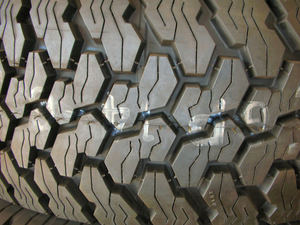- Free Initial Consultation: (954) 761-3641 Tap Here To Call Us
Book v. Voma Tire Corp. – Injury Lawsuit Against Tire Company to Proceed
So many of the products we buy and use every day are manufactured outside the U.S. While these products must adhere to certain safety standards, sometimes they fall short, resulting in injury.

Pursuing litigation against foreign companies can pose challenges, as the recent case of Book v. Voma Tire Corp. et al. illustrated. The case, before the Iowa Supreme Court, almost did not make it to trial, at least where one foreign company was concerned, due to an alleged lack of jurisdiction.
Jurisdiction is the right of a court to oversee a lawsuit against an individual or business. A foreign company may have grounds to assert lack of jurisdiction in state court, although the precedent set in this case means they will be less likely to succeed, at least in Iowa.
Still, it’s important for injury attorneys to closely examine the facts of the case to determine the appropriate court in which to file suit. more The U.S. Supreme Court’s divided decision in J. McIntyre Machinery, Ltd. v. Nicastro in 2011 set a “stream of commerce” test for jurisdiction in product liability cases. It analyzes the route by which products are distributed to determine which court has authority. In this case, the state court ruled a local resident injured by an allegedly dangerous product purchased in the state from a high-volume, foreign manufacturer can seek remedy in state courts.
This ruling matters because few other state courts have taken on this same issue, so they will undoubtedly look to this one in weighing similar cases.
According to court records, the victim in this case was 17-years-old when an allegedly faulty tire on which he was working in his father’s auto shop exploded near his face, resulting in severe and lasting injuries.
The teen’s father had been trying to fit a 16-inch tire on an older model 16.5-inch rim – an apparently common mistake. He became distracted by a phone call and left the room. Soon after, his son, working as an apprentice at the shop, and another worker walked in. The son noticed the tire was underinflated and took it upon himself to inflate it. The tire exploded as he was attempting this task.
As a result, the teen was blinded in one eye, lost part of his jaw, and was left with no sense of smell or taste, and was deprived of partial use of his left arm and hand. He has undergone extensive treatment, and will need to continue doing so for the rest of his life.
His mother filed a lawsuit on his behalf (and on her own for loss of consortium) against a number of entities, including the China-based manufacturer of the tire.
Manufacturer filed a motion to dismiss for lack of personal jurisdiction. The company is one of the largest tire manufacturers in China, producing more than 3 million tires just in the nine months prior to this incident. Hundreds of thousands of those tires were sold in the U.S., and tens of thousands in Iowa.
Even though the manufacturer did not choose the destination of shipments (that was done by a distributor, also a named defendant), plaintiffs argued that a large, high-volume manufacturer selling to a national market is subject to state-level jurisdiction based on direct shipments of thousands of tires in the state. Trial court disagreed and granted defense motion to dismiss, but the state supreme court reversed.
That means the case against this defendant can move forward. Claims against the other defendants, including the distributor, have already been dismissed pursuant to a confidential settlement agreement.
Call Fort Lauderdale Injury Attorney Richard Ansara at (954) 761-4011. Serving Broward, Miami-Dade and Palm Beach counties.
Additional Resources: Book v. Voma Tire Corp. et al., March 6, 2015, Iowa Supreme Court More Blog Entries: Peninsula Logistics v. Erb – Truck Accident Liability Waived, March 12, 2015, Fort Lauderdale Injury Lawyer Blog













